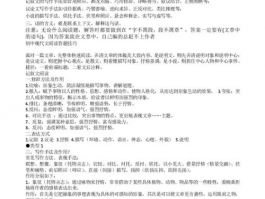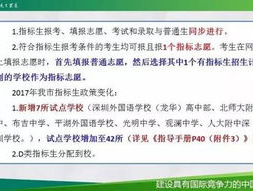Overview of High School Curriculum

The structure of 高中课程, or high school curriculum, is designed to provide a broad and balanced education that prepares students for further education or entry into the workforce. Each high school typically offers a set of required core courses and elective classes that give students the flexibility to explore their interests while meeting academic standards. These courses often include subjects such as mathematics, science, literature, history, and physical education.
In recent years, there's been an increasing focus on STEM (Science, Technology, Engineering, and Mathematics) education within 高中课程 as well as an emphasis on the integration of technology in the classroom. These evolving trends aim to equip students with the necessary skills for a rapidly changing and increasingly digital world. Moreover, many schools now also offer Advanced Placement (AP) classes that allow students to take college-level courses and potentially earn college credit.
Extracurricular activities play a significant role in the high school experience as well. Participation in clubs, sports, arts, and volunteer opportunities can complement the academic 高中课程, promoting personal development and fostering a well-rounded education. These activities often help students discover their passions and develop critical life skills like teamwork, leadership, and time management.
Core Subjects in 高中课程
Math is a fundamental part of the 高中课程. Students typically progress through subjects such as algebra, geometry, and calculus. Mathematics helps develop critical thinking and problem-solving skills that are crucial for many career paths. Calculus or statistics may be offered in the later years to prepare students for college-level math.
Science is another key area of focus, including biology, chemistry, and physics. These subjects build a strong foundation of scientific knowledge and foster inquiry-based learning. Advanced courses such as environmental science or anatomy may be available for students particularly interested in pursuing science-related careers.
Language arts, including English literature and composition, is essential for developing strong communication skills. These courses teach students how to analyze texts, write effectively, and present their ideas clearly. Reading classic and contemporary works also enhances students' understanding of different cultures and perspectives.
Social studies is equally pivotal, encompassing history, geography, and civics. These subjects help students understand societal dynamics and their roles as responsible citizens. They cover historical events, government structures, economic systems, and social issues, providing context to contemporary global and local affairs.
Physical education and health are also part of the 高中课程. These classes promote physical fitness, well-being, and healthy lifestyle choices. They often include a variety of sports and activities, health education, and discussions on topics such as nutrition and mental health.
Elective Courses and Their Importance
Elective courses play a vital role in the 高中课程 by allowing students to explore their interests and talents beyond the core subjects. These courses can range widely, including options like foreign languages, arts, music, computer science, and vocational training.
Foreign language courses are particularly valuable in our increasingly interconnected world. Learning a second or third language can enhance cognitive abilities and cultural awareness, offering students a competitive edge in the global job market. Popular choices often include Spanish, French, and Mandarin.
The arts, including visual arts, theater, and music, provide a creative outlet for students. These courses foster artistic skills, creativity, and self-expression. Participation in art-related electives can also improve academic performance by enhancing skills such as critical thinking and problem-solving.
Technology and computer science courses have grown in importance with the digital transformation of society. These electives teach students about programming, web development, and digital literacy, preparing them for careers in high-demand tech fields. Robotics, IT fundamentals, and graphic design are a few examples of tech electives offered in many schools.
Vocational education courses offer practical skills and career-oriented training in fields such as automotive repair, culinary arts, and health sciences. These electives provide hands-on experience and can lead to certifications that benefit students directly entering the workforce post-graduation.
Q&A Section
Q1: What are the core subjects included in the 高中课程?
A1: The core subjects in 高中课程 typically include mathematics, science, language arts, social studies, and physical education/health.
Q2: Why are elective courses important in high school?
A2: Elective courses allow students to explore their interests, develop additional skills, and gain practical knowledge in areas like foreign languages, arts, and vocational training, which are beneficial for their personal and professional growth.
Q3: How does participation in extracurricular activities complement the 高中课程?
A3: Extracurricular activities help students develop critical life skills like teamwork, leadership, and time management, and can also enhance personal development and discover new passions.
Q4: What is the significance of STEM education in high school?
A4: STEM education focuses on science, technology, engineering, and mathematics, equipping students with critical skills necessary for the modern job market and fostering innovative thinking and problem-solving abilities.
Q5: What benefits do Advanced Placement (AP) classes offer to high school students?
A5: AP classes provide college-level coursework to high school students, offering the potential to earn college credit and better prepare them for higher education challenges.









